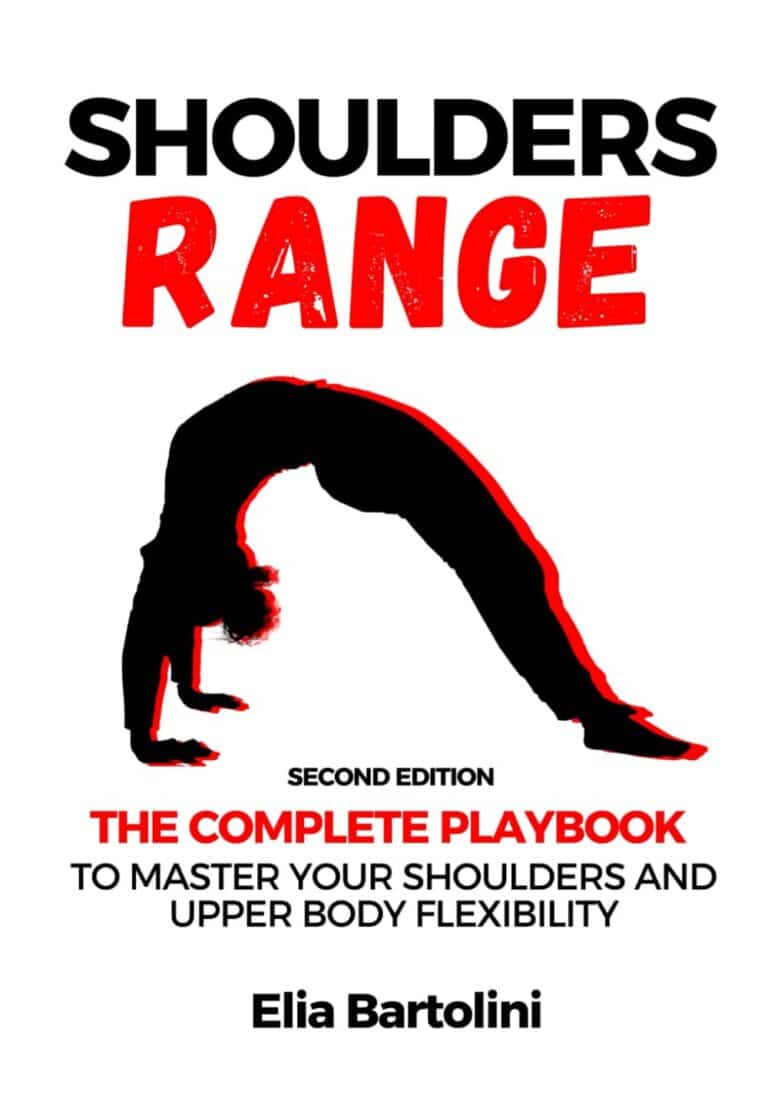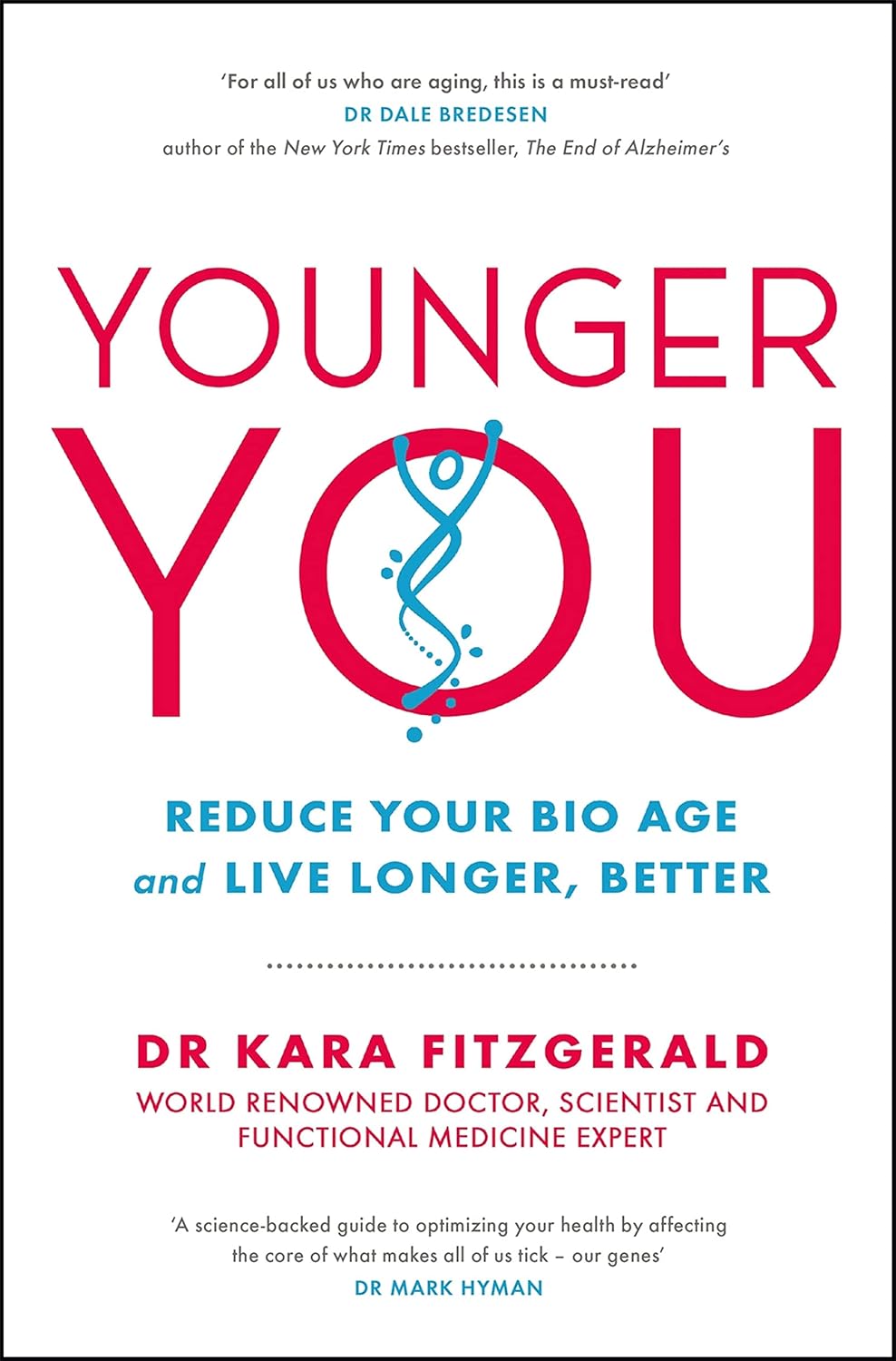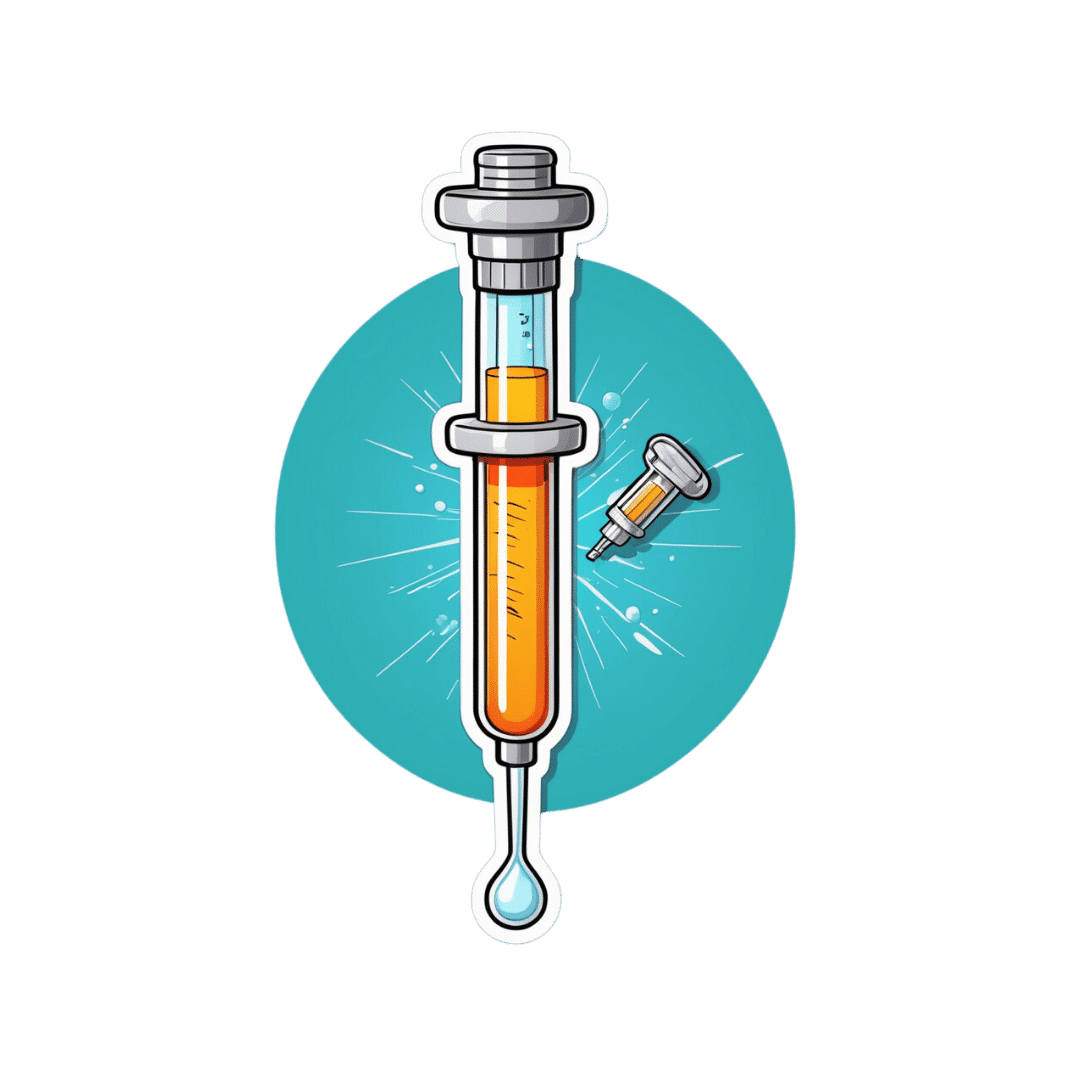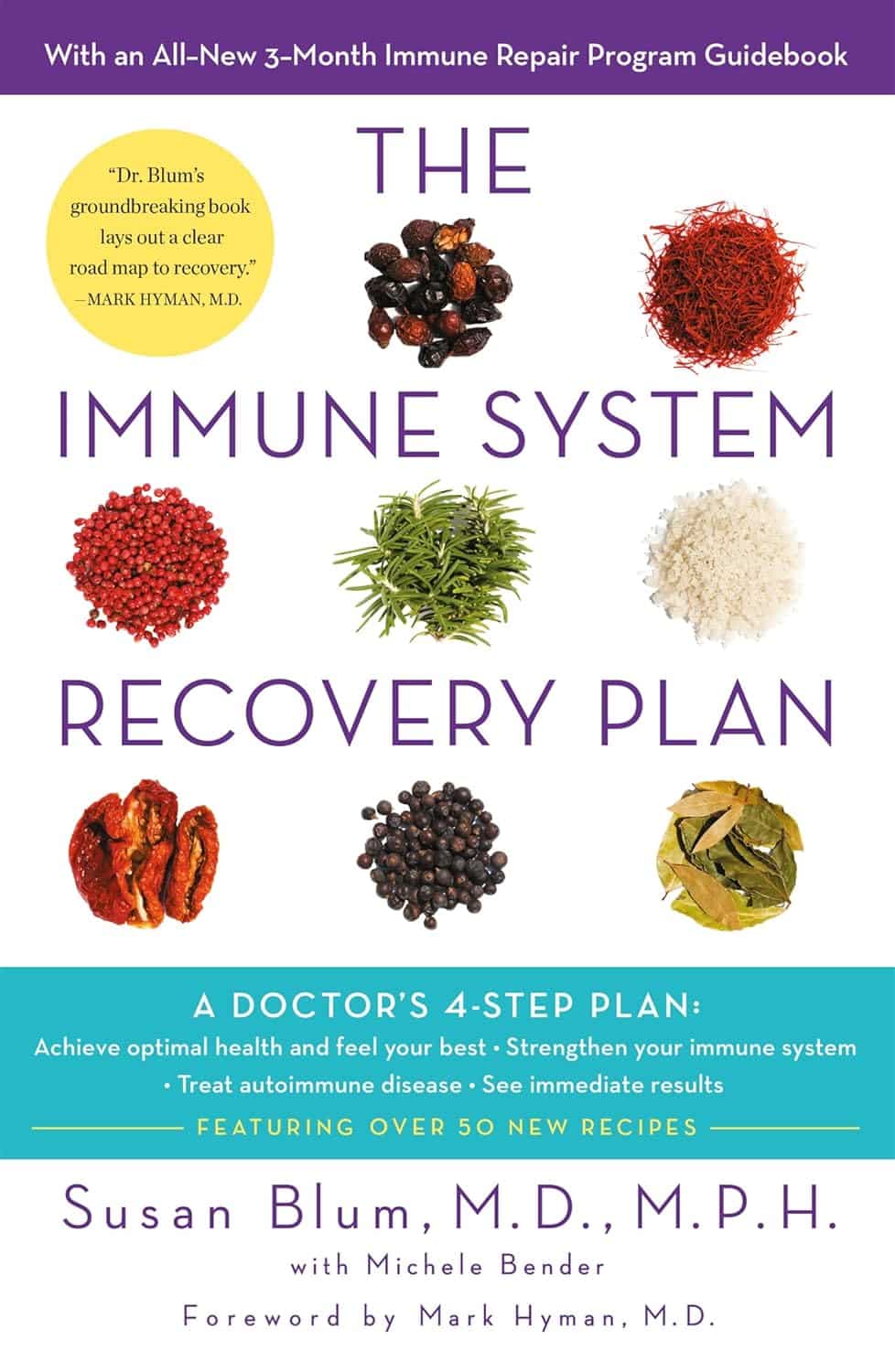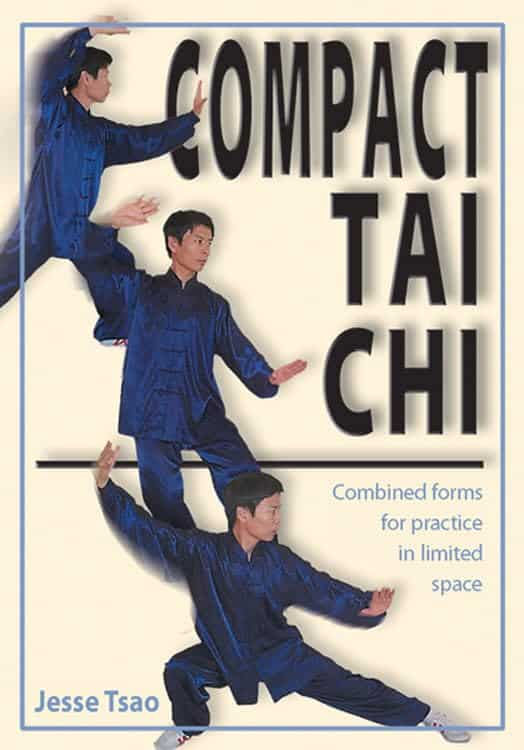
Compact Tai Chi – by Dr. Jesse Tsao
10almonds is reader-supported. We may, at no cost to you, receive a portion of sales if you purchase a product through a link in this article.
A very frustrating thing when practicing tai chi, especially when learning, is the space typically required. We take a step this way and lunge that way and turn and now we’ve kicked a bookcase. Add a sword, and it’s goodnight to the light fixtures at the very least.
While a popular suggestion may be “do it outside”, we do not all have the luxury of living in a suitable climate. We also may prefer to practice in private, with no pressing urge to have an audience.
Tsao’s book, therefore, is very welcome. But how does he do it? The very notion of constriction is antithetical to tai chi, after all.
He takes the traditional forms, keeps the movements mostly the same, and simply changes the order of them. This way, the practitioner revolves around a central point. Occasionally, a movement will become a smaller circle than it was, but never in any way that would constrict movement.
Of course, an obvious question for any such book is “can one learn this from a book?” and the answer is complex, but we would lean towards yes, and insofar as one can learn any physical art from a book, this one does a fine job. It helps that it builds up progressively, too.
All in all, this book is a great choice for anyone who’s interested in taking up tai chi, and/but would like to do so without leaving their home.
Don’t Forget…
Did you arrive here from our newsletter? Don’t forget to return to the email to continue learning!
Recommended
Learn to Age Gracefully
Join the 98k+ American women taking control of their health & aging with our 100% free (and fun!) daily emails:
-
Hate salad or veggies? Just keep eating them. Here’s how our tastebuds adapt to what we eat
10almonds is reader-supported. We may, at no cost to you, receive a portion of sales if you purchase a product through a link in this article.
Do you hate salad? It’s OK if you do, there are plenty of foods in the world, and lots of different ways to prepare them.
But given almost all of us don’t eat enough vegetables, even though most of us (81%) know eating more vegetables is a simple way to improve our health, you might want to try.
If this idea makes you miserable, fear not, with time and a little effort you can make friends with salad.
Why don’t I like salads?
It’s an unfortunate quirk of evolution that vegetables are so good for us but they aren’t all immediately tasty to all of us. We have evolved to enjoy the sweet or umami (savoury) taste of higher energy foods, because starvation is a more immediate risk than long-term health.
Vegetables aren’t particularly high energy but they are jam-packed with dietary fibre, vitamins and minerals, and health-promoting compounds called bioactives.
Those bioactives are part of the reason vegetables taste bitter. Plant bioactives, also called phytonutrients, are made by plants to protect themselves against environmental stress and predators. The very things that make plant foods bitter, are the things that make them good for us.
Unfortunately, bitter taste evolved to protect us from poisons, and possibly from over-eating one single plant food. So in a way, plant foods can taste like poison.
For some of us, this bitter sensing is particularly acute, and for others it isn’t so bad. This is partly due to our genes. Humans have at least 25 different receptors that detect bitterness, and we each have our own genetic combinations. So some people really, really taste some bitter compounds while others can barely detect them.
This means we don’t all have the same starting point when it comes to interacting with salads and veggies. So be patient with yourself. But the steps toward learning to like salads and veggies are the same regardless of your starting point.
It takes time
We can train our tastes because our genes and our receptors aren’t the end of the story. Repeat exposures to bitter foods can help us adapt over time. Repeat exposures help our brain learn that bitter vegetables aren’t posions.
And as we change what we eat, the enzymes and other proteins in our saliva change too. This changes how different compounds in food are broken down and detected by our taste buds. How exactly this works isn’t clear, but it’s similar to other behavioural cognitive training.
Add masking ingredients
The good news is we can use lots of great strategies to mask the bitterness of vegetables, and this positively reinforces our taste training.
Salt and fat can reduce the perception of bitterness, so adding seasoning and dressing can help make salads taste better instantly. You are probably thinking, “but don’t we need to reduce our salt and fat intake?” – yes, but you will get more nutritional bang-for-buck by reducing those in discretionary foods like cakes, biscuits, chips and desserts, not by trying to avoid them with your vegetables.
Adding heat with chillies or pepper can also help by acting as a decoy to the bitterness. Adding fruits to salads adds sweetness and juiciness, this can help improve the overall flavour and texture balance, increasing enjoyment.
Pairing foods you are learning to like with foods you already like can also help.
The options for salads are almost endless, if you don’t like the standard garden salad you were raised on, that’s OK, keep experimenting.
Experimenting with texture (for example chopping vegetables smaller or chunkier) can also help in finding your salad loves.
Challenge your biases
Challenging your biases can also help the salad situation. A phenomenon called the “unhealthy-tasty intuition” makes us assume tasty foods aren’t good for us, and that healthy foods will taste bad. Shaking that assumption off can help you enjoy your vegetables more.
When researchers labelled vegetables with taste-focused labels, priming subjects for an enjoyable taste, they were more likely to enjoy them compared to when they were told how healthy they were.
The bottom line
Vegetables are good for us, but we need to be patient and kind with ourselves when we start trying to eat more.
Try working with biology and brain, and not against them.
And hold back from judging yourself or other people if they don’t like the salads you do. We are all on a different point of our taste-training journey.
Emma Beckett, Senior Lecturer (Food Science and Human Nutrition), School of Environmental and Life Sciences, University of Newcastle
This article is republished from The Conversation under a Creative Commons license. Read the original article.
Share This Post
-
Perfectionism, And How To Make Yours Work For You
10almonds is reader-supported. We may, at no cost to you, receive a portion of sales if you purchase a product through a link in this article.
Harness The Power Of Your Perfectionism
A lot of people see perfectionism as a problem—and it can be that!
We can use perfectionism as a would-be shield against our fear of failure, by putting things off until we’re better prepared (repeat forever, or at least until the deadliniest deadline that ever deadlined), or do things but really struggle to draw a line under them and check them off as “done” because we keep tweaking and improving and improving… With diminishing returns (forever). So, that’s not helpful.
But, if we’re mindful, we can also leverage our perfectionism to our benefit.
Great! How?
First we need to be able to discern the ways in which perfectionism can be bad or good for us. Or as it’s called in psychology, ways in which our perfectionism can be maladaptive or adaptive.
- Maladaptive: describing a behavioral adaptation to our environment—specifically, a reactive behavioral adaptation that is unhealthy and really is not a solution to the problem at hand
- Adaptive: describing a behavioral adaptation to our environment—specifically, a responsive behavioral adaptation that is healthy and helps us to thrive
So in the case of perfectionism, one example for each might be:
- Maladaptive: never taking up that new hobby, because you’re just going to suck at it anyway, and what’s the point if you’re not going to excel? You’re a perfectionist, and you don’t settle for anything less than excellence.
- Adaptive: researching the new hobby, learning the basics, and recognizing that even if the results are not immediately perfect, the learning process can be… Yes, even with mistakes along the way, for they too are part of learning! You’re a perfectionist, and you’re going to be the best possible student of your new hobby.
Did you catch the key there?
When it comes to approaching things we do in life—either because we want to or because we must—there are two kinds of mindset: goal-oriented, and task-oriented.
Broadly speaking, each has their merits, and as a general topic, it’s beyond the scope of today’s main feature. Here we’re looking at it in the context of perfectionism, and in that frame, there’s a clear qualitative difference:
- The goal-oriented perfectionist will be frustrated to the point of torment, at not immediately attaining the goal. Everything short of that will be a means to an end, at best. Not fun.
- The task-oriented perfectionist will take joy in going about the task in the best way possible, and optimizing their process as they go. The journey itself will be rewarding and a tangible product of their consistent perfectionism.
The good news is: you get to choose! You’re not stuck in a box.
If you’re thinking “I’m a perfectionist and I’m generally a goal-oriented person”, that’s fine. You’re just going to need to reframe your goals.
- Instead of: my goal is to be fluent in Arabic
- …so you never speak it, because to err is human, all too human, and you’re a perfectionist, so you don’t want that!
- Let’s try: my goal is to study Arabic for at least 15 minutes per day, every day, without fail, covering at least some new material each time, no matter how small the increase
- …and then you go and throw yourself into conversation way out of your depth, make mistakes, and get corrections, because that’s how you learn, and you’re a perfectionist, so you want that!
This goes for any field of expertise, of course.
- If you want to play the violin solo in Carnegie Hall, you have to pick up your violin and practice each day.
- If you want to be a world-renowned pastry chef, you have to make a consistent habit of baking.
- If you want to write a bestselling book, you have to show up at your keyboard.
Be perfect all you want, but be the perfect student.
And as your skills grow, maybe you’ll upgrade that to also being the perfect practitioner, and perhaps later still, the perfect teacher.
But just remember:
Perfection comes not from the end goal (that would be backwards thinking!) but from the process (which includes mistakes; they’re an important part of learning; embrace them and grow!), so perfect that first.
Share This Post
-
Biohack Your Brain – by Dr. Kristen Willeumier
10almonds is reader-supported. We may, at no cost to you, receive a portion of sales if you purchase a product through a link in this article.
The title of this book is a little misleading, as it’s not really about biohacking; it’s more like a care and maintenance manual for the brain.
This distinction is relevant, because to hack a thing is to use it in a way it’s not supposed to be used, and/or get it to do something it’s not supposed to do.
Intead, what neurobiologist Dr. Kristen Willeumier offers us is much more important: how to keep our brain in good condition.
She takes us through the various things that our brain needs, and what will happen if it doesn’t get them. Some are dietary, some are behavioral, some are even cognitive.
A strength of this book is not just explaining what things are good for the brain, but also: why. Understanding the “why” can be the motivational factor that makes a difference between us doing the thing or not!
For example, if we know that exercise is good for the brain, we think “sounds reasonable” and carry on with what we were doing. If, however, we also understand how increased bloodflow helps with the timely removal of beta-amyloids that are associated with Alzheimer’s, we’re more likely to make time for getting that movement going.
Bottom line: there are key things we can do to keep our brain healthy, and you probably wouldn’t want to miss any. This book is a great care manual for such!
Click here to check out Biohack Your Brain and keep your brain young and fit!
Share This Post
Related Posts
-
Younger You – by Kara Fitzgerald
10almonds is reader-supported. We may, at no cost to you, receive a portion of sales if you purchase a product through a link in this article.
First, a note about the author: she is a naturopathic doctor, a qualification not recognized in most places. Nevertheless, she clearly knows a lot of stuff, and indeed has been the lead research scientist on a couple of studies, one of which was testing the protocol that would later go into this book.
Arguably, there’s a conflict of interest there, but it’s been peer reviewed and the science seems perfectly respectable. After an 8-week interventional trial, subjects enjoyed a reversal of DNA methylation (one of various possible markers of biological aging) comparable to being 3 years younger.
Where the value of this book lies is in optimizing one’s diet in positive fashion. In other words, what to include rather than what to exclude, but the “include” list is quite extensive so you’re probably not going to be reaching for a donut by the time you’ve eaten all that. In particular, she’s optimized the shopping list for ingredients that contain her DNA methylation superstars most abundantly; those nutrients being: betaine choline, curcumin, epigallocatechin gallate, quercetin, rosmarinic acid, and vitamins B9 and B12.
To make this possible, she sets out not just shopping list but also meal plans, and challenges the reader to do an 8-week intervention of our own.
Downside: it is quite exacting if you want to follow it 100%.
Bottom line: this is a very informative, science-based book. It can make you biologically younger at least by DNA methylation standards, if the rather specific diet isn’t too onerous for you.
Click here to check out Younger You, and enjoy a younger you!
Don’t Forget…
Did you arrive here from our newsletter? Don’t forget to return to the email to continue learning!
Learn to Age Gracefully
Join the 98k+ American women taking control of their health & aging with our 100% free (and fun!) daily emails:
-
Debunking the myth that vaccines cause autism
10almonds is reader-supported. We may, at no cost to you, receive a portion of sales if you purchase a product through a link in this article.
The myth that autism is linked to childhood vaccines first appeared in a 1998 study by British physician Dr. Andrew Wakefield. The study was later retracted, and Wakefield was discredited. But nearly three decades after the study’s publication, the myth persists, championed by activists, political leaders, and even potential health officials.
There is overwhelming evidence that there is no link between vaccines and autism. “No one has any real or solid evidence that vaccines cause autism,” says Catherine Lord, a psychologist and autism researcher at the University of California, Los Angeles.
Here are just some of the many reasons that we know vaccines don’t cause autism.
The Wakefield study has been thoroughly discredited
In 1998, the Lancet published a study describing a small group of children who reportedly had bowel inflammation and developed autism within a month of getting the measles, mumps, and rubella (MMR) vaccine. The study proposed that the vaccination triggered bowel inflammation and developmental delays, including autism. Lead author Andrew Wakefield coined the term “autistic enterocolitis” to describe the condition he and his colleagues claimed to have discovered.
The study received significant media attention and immediate criticism from scientists, who pointed out the study’s small size, lack of controls, and insufficient evidence to support its conclusions.
Subsequent research published over the next few years refuted Wakefield’s findings. A 1999 Lancet study found no link between autism and the MMR vaccine, and a 2001 study found no evidence of a link or the existence of so-called autistic enterocolitis.
In 2010, the Lancet finally retracted Wakefield’s fraudulent study, noting that “several elements” of the study were “incorrect” and that the experiments carried out on children had not been approved by an ethics board. The journal’s editor called the paper’s conclusions “utterly false.”
A few months later, Wakefield was stripped of his medical license by the United Kingdom’s General Medical Council. The council deemed Wakefield “dishonest and irresponsible” and concluded that he conducted unethical experiments on children.
The committee’s investigation also revealed that, less than a year before he published his study claiming that the MMR vaccine was linked to bowel inflammation that triggered autism, Wakefield filed a patent for a standalone measles vaccine and inflammatory bowel disease treatment.
Thimerosal was removed from childhood vaccines in 2001—with no effect on autism rates
A 2003 study published by a conservative group known for promoting anti-science myths—including that HIV doesn’t cause AIDS—first proposed that the preservative thimerosal in childhood vaccines is linked to autism. This supposed link was subsequently disproven.
Thimerosal is added in small amounts to some vaccines to prevent dangerous bacterial and fungal contamination. The substance contains ethylmercury, a form of mercury that the body quickly and safely processes in small doses.
Ethylmercury is different from methylmercury, a far more dangerous form of mercury that is toxic at low doses. By contrast, the small amount of thimerosal in some vaccines is harmless to humans and is equal to the amount of mercury in a can of tuna.
The preservative was removed from childhood vaccines as a precautionary measure in 2001. With the exception of some flu shots, no childhood vaccine contains the preservative and hasn’t for more than two decades. Autism rates have not decreased as a result of thimerosal being removed from childhood immunization vaccines. While some types of the annual flu vaccine contain thimerosal, you can get one without it.
Extensive research also shows that neither thimerosal nor methylmercury at any dose is linked to autism. A 2008 study of statewide California data found that autism rates “increased consistently for children born from 1989 through 2003, inclusive of the period when exposure to [thimerosal-containing vaccines] has declined.”
Autism rates are the same in vaccinated and unvaccinated children
Vaccine opponents often falsely claim that vaccinated children are more likely than unvaccinated children to develop autism. Decades of research disprove this false claim.
A 2002 analysis of every child born in Denmark over eight years found that children who received MMR vaccines were no more likely to be diagnosed with autism than unvaccinated children.
A 2015 study of over 95,000 U.S. siblings found that MMR vaccination is not associated with increased autism diagnosis. This was true even among the siblings of children with autism, who are seven times more likely to develop autism than children without an autistic sibling.
And a 2018 study found some evidence that children with autism—and their siblings—were more likely to be unvaccinated or under-vaccinated than children without autism.
Vaccination also has no impact on autism rates at the population level, regardless of the age at which children get vaccinated.
“In comparing countries that have different timing and levels of vaccination … there’s no difference in autism,” says Lord. “You can look at different countries with different rates of autism, and there’s no relationship between the rates of autism and vaccinations.”
Countries such as Taiwan, Tunisia, Turkey, and Morocco, which have some of the world’s lowest autism rates, have childhood immunization rates that are nearly identical to countries with the highest autism rates, including Sweden, Japan, Brunei, and Singapore.
Improved awareness and diagnosis play a role in rising autism rates
Autism was first described in 1911 when it was considered to be a form of severe schizophrenia. Over a century later, our understanding of autism has changed drastically, as have diagnostic standards.
A 2013 scientific article describing how medical and social perceptions of autism have evolved explains that “the diagnoses of schizophrenia, psychosis and autism in children were largely interchangeable during the 1940s and 1950s.” Beginning in the 1960s, methods of diagnosing autism improved, “increasing the number of children who were considered to display autistic traits.”
The autism diagnosis was changed to autism spectrum disorder in 2013. “This category is now very broad, which was an intentional choice to help provide services to the greatest number of people who might need them,” writes Gideon Meyerowitz-Katz, an epidemiologist and creator of the popular Health Nerd blog.
“Rather than the severe intellectual disability of the 1940s and 50s, [autism spectrum disorder] is a group of behaviours that can be any severity as long as they are persistent and impact people’s daily functioning in a significant way.”
For more information about autism, talk to your health care provider.
This article first appeared on Public Good News and is republished here under a Creative Commons license.
Don’t Forget…
Did you arrive here from our newsletter? Don’t forget to return to the email to continue learning!
Learn to Age Gracefully
Join the 98k+ American women taking control of their health & aging with our 100% free (and fun!) daily emails:
-
The Immune System Recovery Plan – by Dr. Susan Blum
10almonds is reader-supported. We may, at no cost to you, receive a portion of sales if you purchase a product through a link in this article.
The subtitle of the book is “A Doctor’s 4-Step Program to Treat Autoimmune Disease”, so we’ll not keep the four steps a secret; they are:
- Using food as medicine
- Understanding the stress connection
- Healing your gut and digestive system
- Optimizing liver function
Each of these sections gives a primer in the relevant science, worksheets for personalizing your own plan to your own situation, condition, and goals, and of course lots of practical advice.
This is important and perhaps the book’s greatest strength, since there are dozens of possible autoimmune conditions, and getting a professional diagnosis is often a long, arduous process. So while this book can’t necessarily speed that up, what it can do is give you a good head-start on managing your symptoms based on things that are most likely to help, and certainly, there will be no harm trying.
While it’s not primarily a recipe book, there are also recipes targeting each part of the whole, as well as an extensive herb and supplement guide, before getting into lots of additional resources.
Bottom line: if you are, or suspect you are, suffering from an autoimmune condition, the information in this book can make your life a lot easier.
Click here to check out The Immune System Recovery Plan, and help yours to help you!
Don’t Forget…
Did you arrive here from our newsletter? Don’t forget to return to the email to continue learning!
Learn to Age Gracefully
Join the 98k+ American women taking control of their health & aging with our 100% free (and fun!) daily emails:

